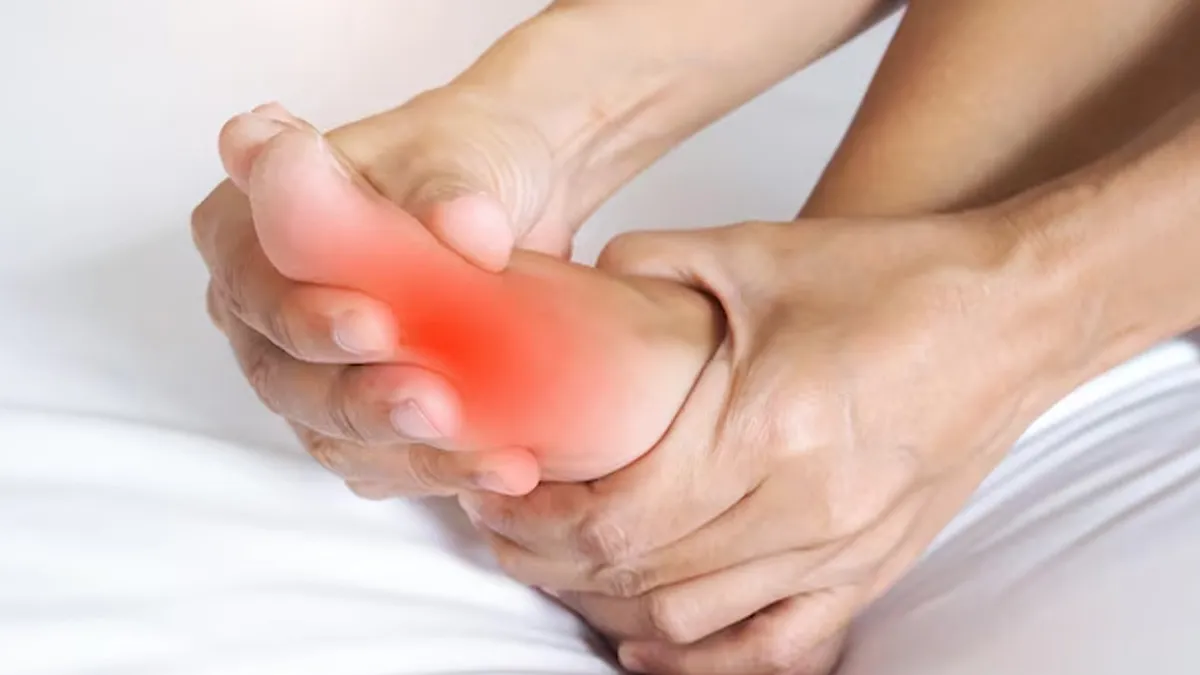
As you reach middle age, typically between 30 and 50 years of age, there are a wide range of health issues that are likely to affect you. Gout is one of them. Gout is a type of arthritis that is caused by a buildup of uric acid crystals in the joints, often affecting the big toe. While anyone can develop it, older adults and men are more prone to developing it than women.
Table of Content:-
Although gout isn't curable, there are ways to manage the pain associated with the condition. Speaking with the OnlyMyHealth team, Dr J V Srinivas, Lead Senior Consultant – Orthopaedics and Joint Replacement, Aster RV Hospital, Bengaluru, sheds light on the treatment options and lifestyle changes to eliminate the pain and prevent flare-ups.
Also Read: Anthony Anderson Opens Up About Developing Gout From Eating Too Much Shellfish In New Orleans
What Is Gout?

Gout is a chronic inflammatory arthritis and is often referred to as the disease of the kings and the king of diseases. This is because historically, the condition was associated with wealthy individuals who could afford a diet rich in meats and alcohol, which are known to raise uric acid levels and trigger gout attacks.
According to StatPearls Publishing, gout prevalence can vary by age, sex, and country of origin. Generally, the prevalence of gout is 1-4%, with older age and male sex being the two common risk factors worldwide.
Factors That Contribute To Gout

While the exact cause of gout is unknown, there are certain factors that can put people at risk. These include:
- Eating high-purine foods like red meat, seafood, and organ meats, which increase uric acid levels
- Alcohol consumption
- Dehydration
- Stress
- Taking drugs like aspirin and diuretics
- Genetic factors
Also Read: From Alcohol To Soft Drinks, 4 Drinks That Can Increase Your Risk Of Gout
How To Manage Gout Pain That Is Persistent?

Unfortunately, gout cannot be cured. However, it can be managed through medications and lifestyle changes. Here are some of the key management tips:
Stick to your treatment: Take allopurinol consistently as prescribed—it doesn’t relieve pain immediately but lowers uric acid over time to prevent future attacks.
Avoid high-purine foods: Cut down on red meat, organ meats, seafood, and gravy, all of which raise uric acid levels.
Limit alcohol, especially beer: Alcohol interferes with uric acid elimination. Beer is a common trigger for gout flares.
Stay well hydrated: Drink plenty of water (at least 2–3 litres/day) to prevent uric acid from concentrating and crystallising in the joints.
Manage stress: Chronic stress can trigger or worsen gout flares. Engage in stress-reducing activities like meditation, gentle exercise, or hobbies.
Avoid triggering medications: Certain drugs like aspirin and diuretics (unless medically necessary) can raise uric acid levels and should be avoided or replaced under medical guidance.
Eat a gout-friendly diet: Focus on low-purine foods like fresh fruits, vegetables, whole grains, legumes, and low-fat dairy.
Maintain a healthy weight: Losing weight gradually can reduce uric acid levels and ease joint pressure.
Consult a specialist if pain persists: Chronic or worsening gout pain may indicate joint damage or tophi buildup. Joint imaging or medication adjustment may be needed.
Conclusion
Gout is a painful condition that can affect anyone. However, it is more common in older people and men who are between the ages of 30 and 50. Gout flare-ups can also happen due to a rich, high-purine diet, which includes red meat and alcohol. It is crucial to tweak your meals to support gout management. Additionally, it is advisable to seek professional treatment and follow the plan consistently.
Also watch this video
How we keep this article up to date:
We work with experts and keep a close eye on the latest in health and wellness. Whenever there is a new research or helpful information, we update our articles with accurate and useful advice.
Current Version